- News
- Reviews
- Bikes
- Accessories
- Accessories - misc
- Computer mounts
- Bags
- Bar ends
- Bike bags & cases
- Bottle cages
- Bottles
- Cameras
- Car racks
- Child seats
- Computers
- Glasses
- GPS units
- Helmets
- Lights - front
- Lights - rear
- Lights - sets
- Locks
- Mirrors
- Mudguards
- Racks
- Pumps & CO2 inflators
- Puncture kits
- Reflectives
- Smart watches
- Stands and racks
- Trailers
- Clothing
- Components
- Bar tape & grips
- Bottom brackets
- Brake & gear cables
- Brake & STI levers
- Brake pads & spares
- Brakes
- Cassettes & freewheels
- Chains
- Chainsets & chainrings
- Derailleurs - front
- Derailleurs - rear
- Forks
- Gear levers & shifters
- Groupsets
- Handlebars & extensions
- Headsets
- Hubs
- Inner tubes
- Pedals
- Quick releases & skewers
- Saddles
- Seatposts
- Stems
- Wheels
- Tyres
- Health, fitness and nutrition
- Tools and workshop
- Miscellaneous
- Cross country mountain bikes
- Tubeless valves
- Buyers Guides
- Features
- Forum
- Recommends
- Podcast
review
£129.00
VERDICT:
No shortage of features and performance is decent, but the CX is expensive and possibly overkill for road riding
Weight:
218g
Contact:
At road.cc every product is thoroughly tested for as long as it takes to get a proper insight into how well it works. Our reviewers are experienced cyclists that we trust to be objective. While we strive to ensure that opinions expressed are backed up by facts, reviews are by their nature an informed opinion, not a definitive verdict. We don't intentionally try to break anything (except locks) but we do try to look for weak points in any design. The overall score is not just an average of the other scores: it reflects both a product's function and value – with value determined by how a product compares with items of similar spec, quality, and price.
What the road.cc scores meanGood scores are more common than bad, because fortunately good products are more common than bad.
- Exceptional
- Excellent
- Very Good
- Good
- Quite good
- Average
- Not so good
- Poor
- Bad
- Appalling
The Gloworm CX is a very interesting 1,200-lumen front light with seemingly no end of mounting options, lens choices, practical abilities and programmable light functions. It performs pretty decently, too. But it's also expensive, complicated, fiddly and at times rather frustrating.
- Pros: Well made, almost no end to customisation, good performance
- Cons: Fiddly to set up and operate, expensive, couldn't get flash to work
One area where there are no cut corners is with the provision of clamps and other assorted paraphernalia. As well as handlebar mounts, there's also a wired remote on/off button and provisions to attach it to your helmet. That, though, is not particularly convenient as the light itself – weighing in at more than 200g – is heavy enough to make itself known up there.
Even after going on the Gloworm website, I'm still none the wiser as to the importance of some bits in the box. The bundle of cable ties, I presume, are for when you grow entirely exasperated with the other clamping options and just decide to cable tie the thing to your bar.
One interesting extra, though, is the choice of two lenses – either a spot/spot configuration or a wide/spot. You simply remove the two mini-hex bolts on the light front with the supplied key and swap in the lens you want. I say 'simply' – you're going to want to do this operation in an environment with laboratory-like tidiness because those mini-bolts really are minute.
That's not where the customisation ends. You'll have to tackle some more mini-bolts depending what kind of mounting you want to fit to the light's base and, should the urge take you, you can also unscrew the on/off/mode button housing. In short, if you didn't get the Meccano set you really wanted for Christmas, this might go some fiddly way to make up for it.
The battery is also removable thanks to the rear opening – just pull in this case, no need for too much fiddling. And when it comes to light operation and mode, that can be tweaked and programmed to your heart's desire without any connecting to computers or t'web. It's not particularly simple, though, and requires a fair bit of patience just to navigate the instructions.
Speaking of which, all the info to get the most out of your light can only be found on the Gloworm website – the supplied guide card is cursory at best. I have to admit, as a time-poor cycling journalist who just wants to see how well things work, the Gloworm has tried my patience. But if you are happy to see bike light ownership as both a financial and time investment, and you have no other hobbies or demands on your time, fill your boots.
Modes and operation
Before we get to performance, we also need a quick masterclass in standard light operation. To switch on 'Trail Mode', you give the rubber top button a single click. Then further clicks cycle through the low, medium and full 1,200-lumen high mode. If you hold the button for a couple of seconds you can also put the light in 'dim' mode. Holding the button for five seconds switches the light off.
However, if you double click the button while the light is off, you can switch on 'Commuter Mode', which gives the option of just low and high settings, although, in my opinion, they looked much more like medium and high. Then, in theory, if you hold the button for a couple of seconds in Commuter Mode, you'll switch on flash mode. This didn't seem to work for me and the light just went into what looked like its low setting instead. I did a factory reset to check I hadn't accidentally put it in programmable mode, but still no joy with the flash – a warranty issue if you'd parted with cash for it.
Performance
Enough faffing around. Let's cut to the chase – how does it perform on the road in the dark? Thankfully, pretty well. On high mode with the spot/spot lens there's plenty of light to see the way with a nice round, relatively compact beam pattern. It's really impressively bright in the centre, and even at the sides it's not too bad.
This can be enhanced further by fitting the wide/spot lens, which offers a far broader beam with very little penalty in terms of straight-ahead brightness. To be honest, I think you'd very happily live with either lens option, but for commuting and general road duties, the wide/spot lens probably just gets the nod.
In terms of output, the low and mid settings don't seem like too much of a drop down in performance and you'll find they'll do the trick for almost all urban adventures. Incidentally, run-time on high is officially around two hours, but I seemed to be getting closer to three. Charging time for me was just over four hours – officially, Gloworm says minimum charge time is five hours. Finally, remaining charge is indicated by the colour light shown below the rubber operation button. It's not the most informative system and – like the rest of the light – you'll have to grow to understand its quirks.
Value and conclusion
One area that I haven't touched on is that the compact and sturdy CX aluminium body is very well made and, for all my moaning and confusion, there are some interesting practical features. For example, as well as being able to remove and replace the battery, the CX can also be used to charge other devices, and you can even have it lighting the way while simultaneously being charged by a dynamo.
So it's very clever – certainly too clever for me – but at £129 is it worth the money? Looking at the rest of the market, you'd have to question it. The only lights we've tested recently that come close in terms of price are the 2,000-lumen ETC Alcor that costs £140, and the £119.99 1,200-lumen Topeak CubiCubi, which also suffers from a bit of over-complication. Both of these we viewed as no better than average value and, for all the Gloworm's added abilities, I'd have to rank it similarly.
> Buyer's Guide: The best 2019/2020 front lights for cycling
In many respects, though, the value of the Gloworm CX is entirely dependent on the opinion of the potential owner. With the exception of the flash mode, which I couldn't get to work, it's a veritable Swiss Army knife of front lighting, with enough mounts, modes and functions to satisfy any desire. If you've always wanted a front light you can get your teeth into, pull apart and play around with, this is for you. For the rest of us who just want to see where we're going, there are cheaper and simpler options.
Verdict
No shortage of features and performance is decent, but the CX is expensive and possibly overkill for road riding
road.cc test report
Make and model: Gloworm CX front light
Size tested: 1200 lumen max
Tell us what the light is for, and who it's aimed at. What do the manufacturers say about it? How does that compare to your own feelings about it?
It's a fairly high-power front light for commuting and general use.
Gloworm says: "The Gloworm CX takes innovation to a new level. The CX is much more than a well-priced commuter light – the CX takes all-in-one lighting into the future. The CX uses custom replaceable optics to produce a beam perfect for the desired application, for convenience it is USB chargeable and can be mounted seamlessly on the bars or helmet. Weighing only 200 grams, the CX can be charged whilst being used meaning it can be charged using a dynamo USB device. The CX is OTG (On The Go) capable and can be used to charge other devices, such as your phone or GPS. The CX has a replaceable battery for extended runtimes and utilises common mounting sytems for ultimate versatility. Simple convenience!"
Not sure I'd agree entirely with the bit about it being a "well-priced commuter light", though it depends on your commute: it's quite expensive, and it's more powerful and customisable than most urban commuters will ever need, though a 'trail' setting suggests offroad use too.
Tell us some more about the technical aspects of the light?
From Gloworm:
Customise Your Light Ouput – IMT (Intelligent Mode Technology)
IMT defines the Gloworm ethos of versatility. IMT provides the freedom to use the Gloworm light in the default settings or to completely customise for ultimate personalisation.
Default Settings
Trail – Low / Medium / High. Special mode: Super Dim
Commute – Low / High. Special mode: Flash (1 Flash every 2 seconds – Flash pattern is High/Low/High) Special modes are activated by holding down the button for 2 sec. This allows the user to conduct any outdoor activity without having to cycle through the special mode and having an interruption of a steady light beam. Additionally, the X2 is shut down by holding the button for appx 5sec. IMT gives you the flexibility of refined programmes and modes without needing to access them every time you go from High mode back to low.
Tech specs:
1200 lumens
Aluminium body
Water resistant (IP65)
6.8AHr lithium-ion battery
2 X Cree XP-G2 LEDS
Replaceable optics
USB charging
OTG (On The Go) charging of other devices
Bar and helmet mounts
Travel lock function
2 optic system (spot/spot) and (spot/wide)
Rate the light for quality of construction:
7/10
The main body of the light is very nicely made, but I'm not super-impressed with the rubber seal/shade that has to be fitted over the lens end.
Rate the light for design and ease of use. How simple was the light to use?
4/10
To get basic functions working it's not too tricky, but making anything like full use of its features is somewhat complicated.
Rate the light for the design and usability of the clamping system/s
8/10
I'd read some reports that the handlebar clamp is prone to slippage in use, but I experienced no such problems.
Rate the light for waterproofing. How did it stand up to the elements?
9/10
Very well. The light is IP65 rated, so it should hold off water ingress well.
Rate the light for battery life. How long did it last? How long did it take to recharge?
7/10
Considering the all-out brightness, I thought the almost-three hours of high-beam use was pretty good. Recharging time of just over four hours isn't bad either.
Rate the light for performance:
8/10
Very good performance – nice 'n' bright.
Rate the light for durability:
7/10
Not so much a problem with durability, but with so many mini-hex bolts needing to be screwed and unscrewed, I worry about lost bits. That said, the ability to replace the battery will help extend life.
Rate the light for weight:
4/10
It's quite a substantial bit of kit – no lightweight.
Rate the light for value:
5/10
The only lights we've tested recently that come close in terms of price are the 2,000-lumen ETC Alcor that costs £140 and the £119.99 1,200-lumen Topeak CubiCubi, which also suffers from a bit of over-complication. Both of these we viewed as no better than average value and I'd have to rank the Gloworm similarly, though with two lenses you're almost getting two lights in one...
Tell us how the light performed overall when used for its designed purpose
It was pretty good as a front light, with two nice beam patterns and more than enough power for commuting and general road riding purposes. In fact, it suffers from overkill when you consider its stated purpose.
Tell us what you particularly liked about the light
Performance on the road leaves little area for complaint.
Tell us what you particularly disliked about the light
Just the whole general faff involved – it seems unnecessarily complicated at times.
Did you enjoy using the light? At times.
Would you consider buying the light? No
Would you recommend the light to a friend? Nope
Use this box to explain your overall score
While the Gloworm CX does a good job when you finally decide to use it as a simple front light, it's not cheap and the extra functions and abilities that justify that high price can actually be quite frustrating to use.
About the tester
Age: 39
I usually ride: Islabikes Beinn 29 My best bike is: 25-year-old Dawes Galaxy
I've been riding for: Over 20 years I ride: Most days I would class myself as: Experienced
I regularly do the following types of riding: commuting, touring, sportives, general fitness riding, mountain biking, leisure



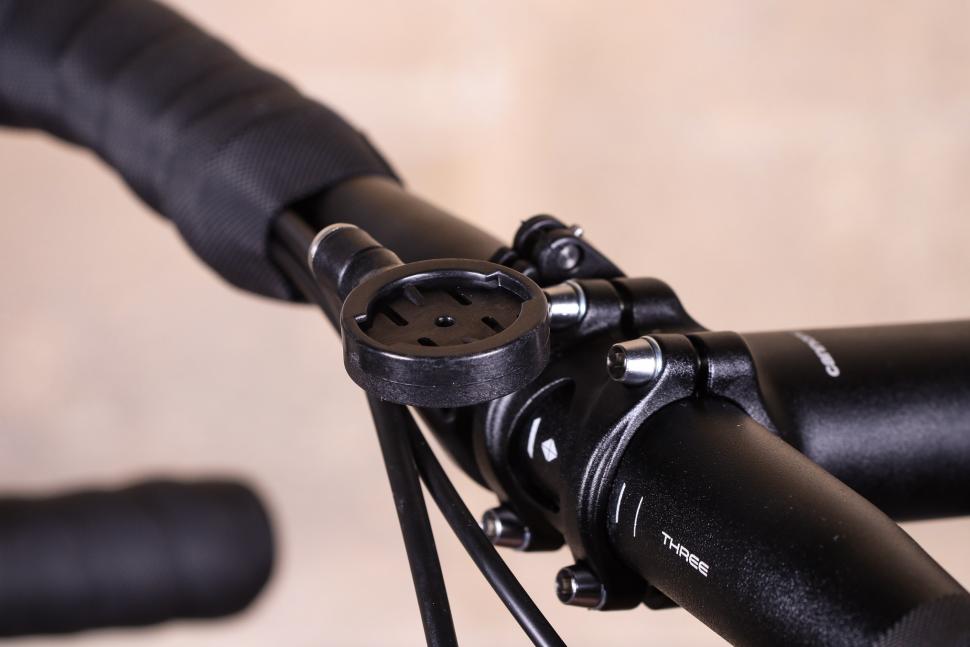
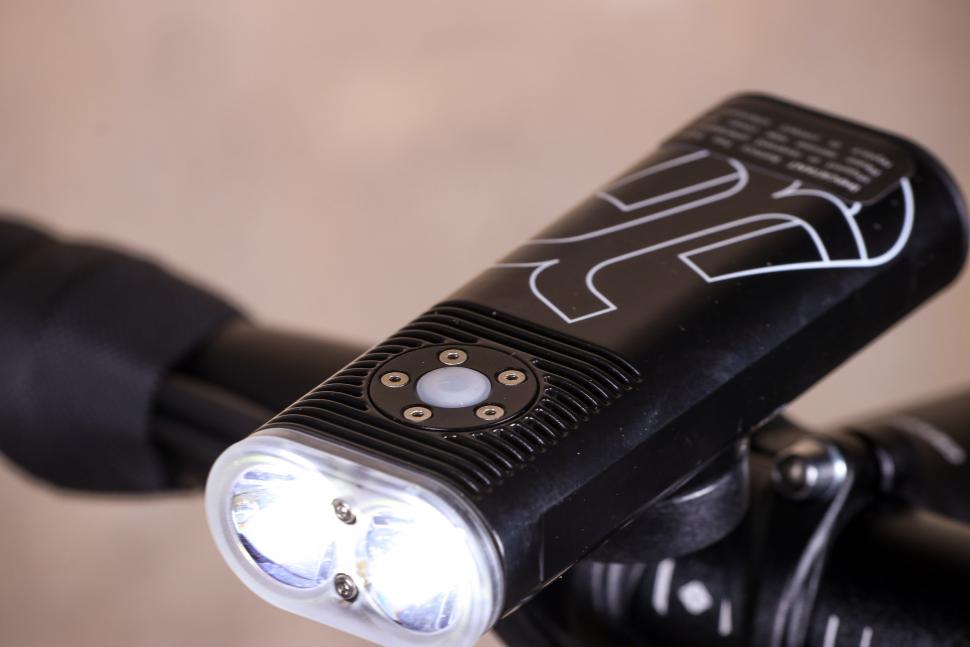
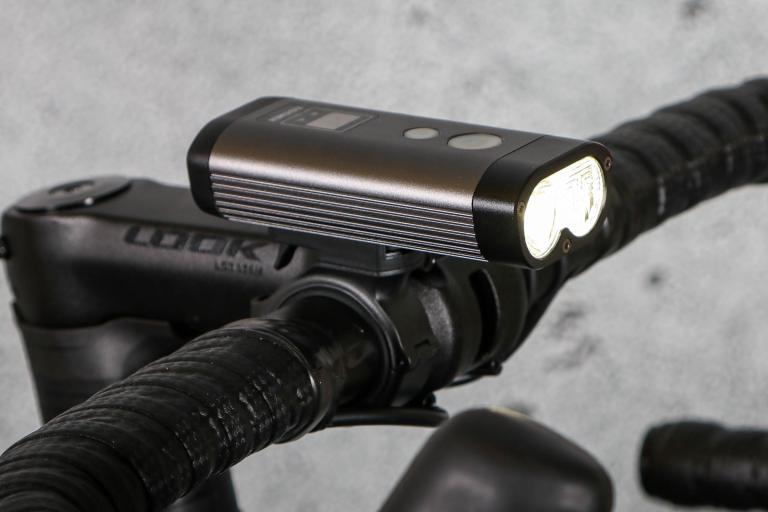
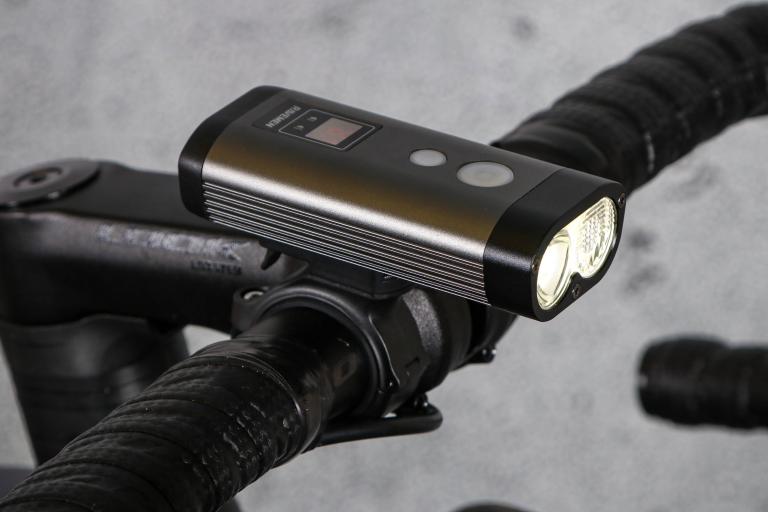
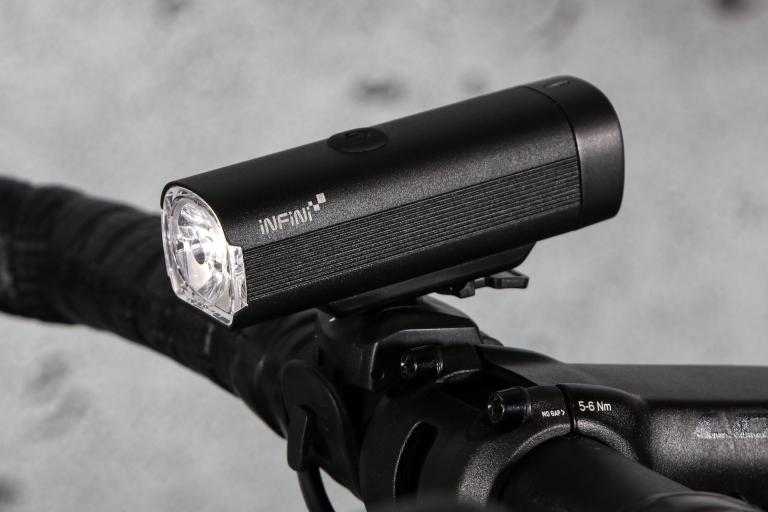
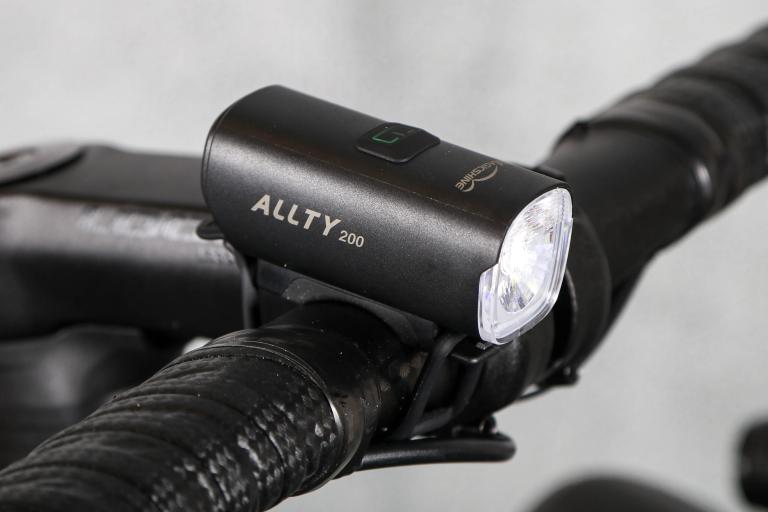
I cycle most days and have never contributed to the economy of Maidenhead either. I can't say I've ever actually been there and I live in London. I...
Police, firefighters and paramedics at Staffordshire smash as 4x4 left in ditch...
Jolly Farmers pub in Forncett Saint Mary closed after crash...
Hard to reconcile the asking price of this, with this https://road.cc/content/tech-news/quintana-roo-unveils-new-all-speed-aer...
I've used Armourtex in north london if you're willing to Powdercoat. Great job. https://www.facebook.com/armourtex
Cycling.Today has you covered for free. Tiz does as well but the moderation over there is a bit facist. Well, a queen mod rules it so it's a...
Well, on one of my uprights I have a mirror mounted but it is really too small / fitting is not secure enough. I find I just don't use it. On...
This highways roadwork protection vehicle should have been wearing hi viz https://www.bbc.co.uk/news/articles/clyer0ny3x7o
The ugliness is the dealbreaker for me.
I'd put in a nomination for the Cateye Viz range....